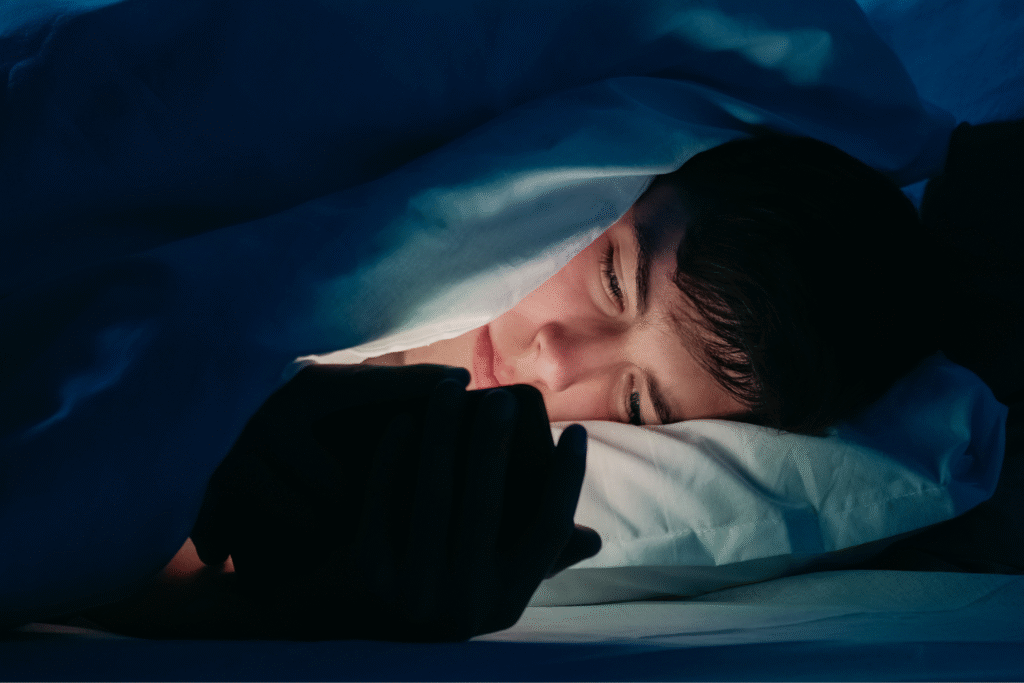Americans are staying up late to reclaim personal time, and Gen Z is leading the charge, often at the cost of not only their sleep, but also health and sanity.
A survey conducted by mattress company Amerisleep has revealed that 51 percent of Americans engage in “revenge bedtime procrastination,” the behavior of delaying sleep despite feeling tired, to reclaim personal time.
But among generations, Gen Z is the most impacted. They’re not just going to bed the latest—they’re also the most likely to sacrifice sleep in exchange for digital distractions and a sense of control over their time.
Gen Z’s average bedtime is a striking 12:30 a.m., later than any other generation. And while Baby Boomers and Gen X may stay up late a few nights a week, Gen Z is pushing back bedtime an average of four nights per week. In most cases, it’s not work or social obligations keeping them up—it’s TikTok, YouTube, and Instagram.
Nearly half of Gen Z respondents (49 percent) said TikTok is their biggest sleep thief, with YouTube (47 percent) and Instagram (42 percent) close behind. These platforms’ endless scroll features create addictive loops that override natural sleep cues, keeping users awake long past when they’re ready to rest.
“Sleep loss in young adults can have major implications for mental and physical well-being. Under 30s are at a key phase in brain development, emotional control, and developing lifelong health habits. Chronic short sleep also raises the risk of anxiety, depression, compromised immune function, hormonal disorders, and burnout,” Rosie Osmun, a certified sleep coach at Amerisleep, told Newsweek.
“Social media and screen use have a profound impact on younger people’s sleep, especially Gen Z. Blue light emitted by screens also inhibits melatonin production, slowing the body’s natural sleep signals. Consequently, Gen Z sleeps later than any other age group, with an average of 12:30 a.m., and most of them push back bedtime four nights a week or more,” she added.
The consequences are catching up. Nearly half (48 percent) of those who sleep 6 hours or less—many of whom are Gen Z—report high levels of burnout, compared to just 34 percent of people who get 7 or more hours of sleep.
Despite feeling tired, 57 percent of Americans say they’re glad they took that time for themselves. It’s a complicated emotional loop: satisfaction in the moment, regret the next day.
There is also evidence that staying up late is more common in people working in certain industries, including hospitality, healthcare and government.
“The industries reporting the highest rates of personal time deficit—legal, hospitality, healthcare, government, and retail—should pay special attention to these findings,” Osmun said. “When workers feel compelled to sacrifice sleep for personal time, both their health and job performance suffer.”
As burnout climbs and mental health concerns grow, reclaiming sleep, not just time, may be the key to helping recovering both energy and balance.
Data was gathered from a survey of 1,000 Americans conducted in 2023. The sample included representation across four generations: Baby Boomers (4 percent), Gen X (23 percent), Millennials (55 percent), and Gen Z (18 percent). The gender distribution was 59 percent female and 41 percent male, with an average age of 40.
Read the full article here
